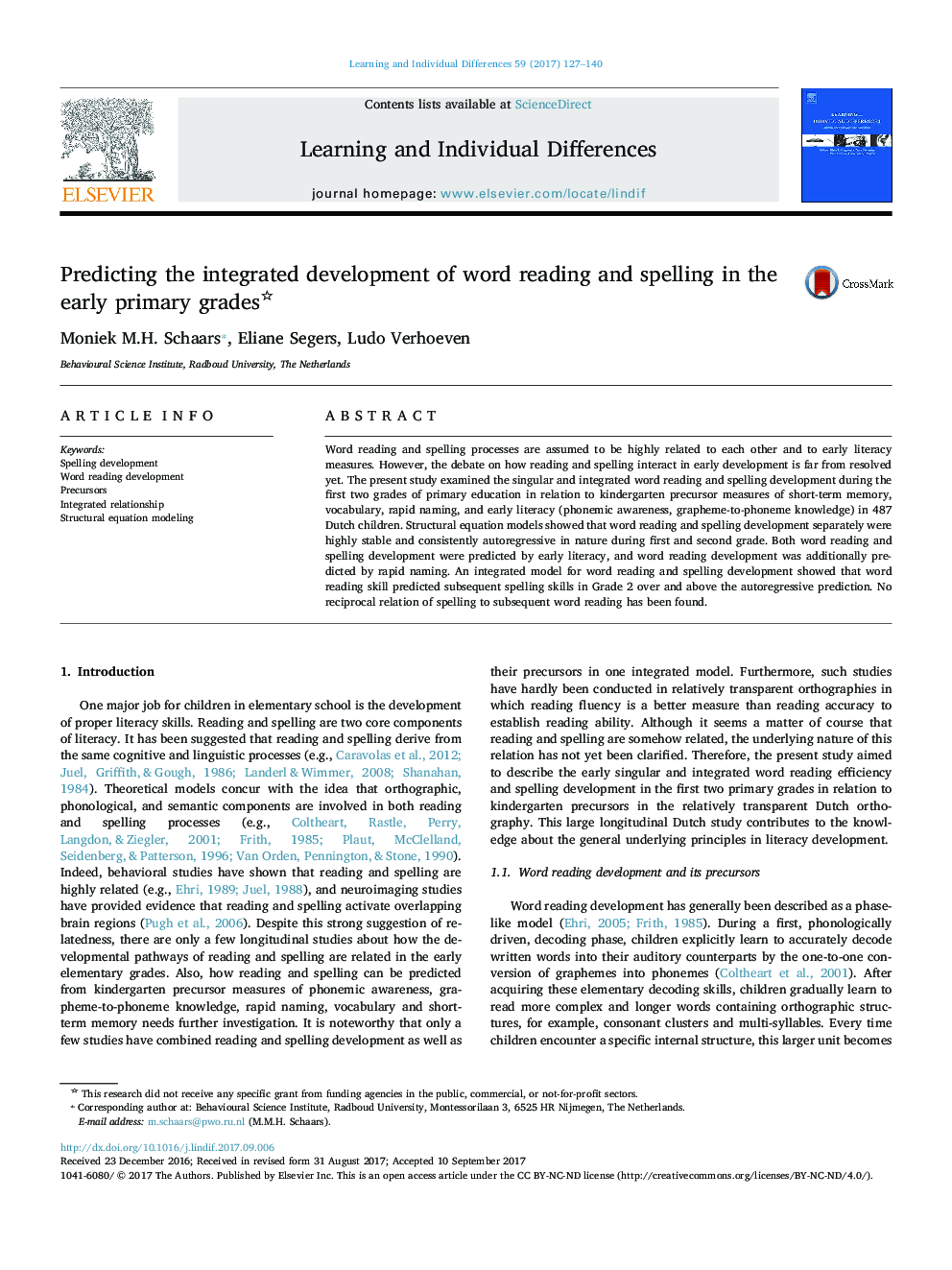| Article ID | Journal | Published Year | Pages | File Type |
|---|---|---|---|---|
| 4940030 | Learning and Individual Differences | 2017 | 14 Pages |
â¢Strong autoregression in Dutch reading and spelling development in Grades 1 and 2.â¢Word reading predicted spelling development in Grade 2; not in Grade 1.â¢No evidence for reciprocal relation of spelling to subsequent word reading.â¢Early literacy predicted both word reading and spelling development.â¢Rapid naming additionally predicted word reading development.
Word reading and spelling processes are assumed to be highly related to each other and to early literacy measures. However, the debate on how reading and spelling interact in early development is far from resolved yet. The present study examined the singular and integrated word reading and spelling development during the first two grades of primary education in relation to kindergarten precursor measures of short-term memory, vocabulary, rapid naming, and early literacy (phonemic awareness, grapheme-to-phoneme knowledge) in 487 Dutch children. Structural equation models showed that word reading and spelling development separately were highly stable and consistently autoregressive in nature during first and second grade. Both word reading and spelling development were predicted by early literacy, and word reading development was additionally predicted by rapid naming. An integrated model for word reading and spelling development showed that word reading skill predicted subsequent spelling skills in Grade 2 over and above the autoregressive prediction. No reciprocal relation of spelling to subsequent word reading has been found.
Graphical abstractDownload high-res image (86KB)Download full-size image
